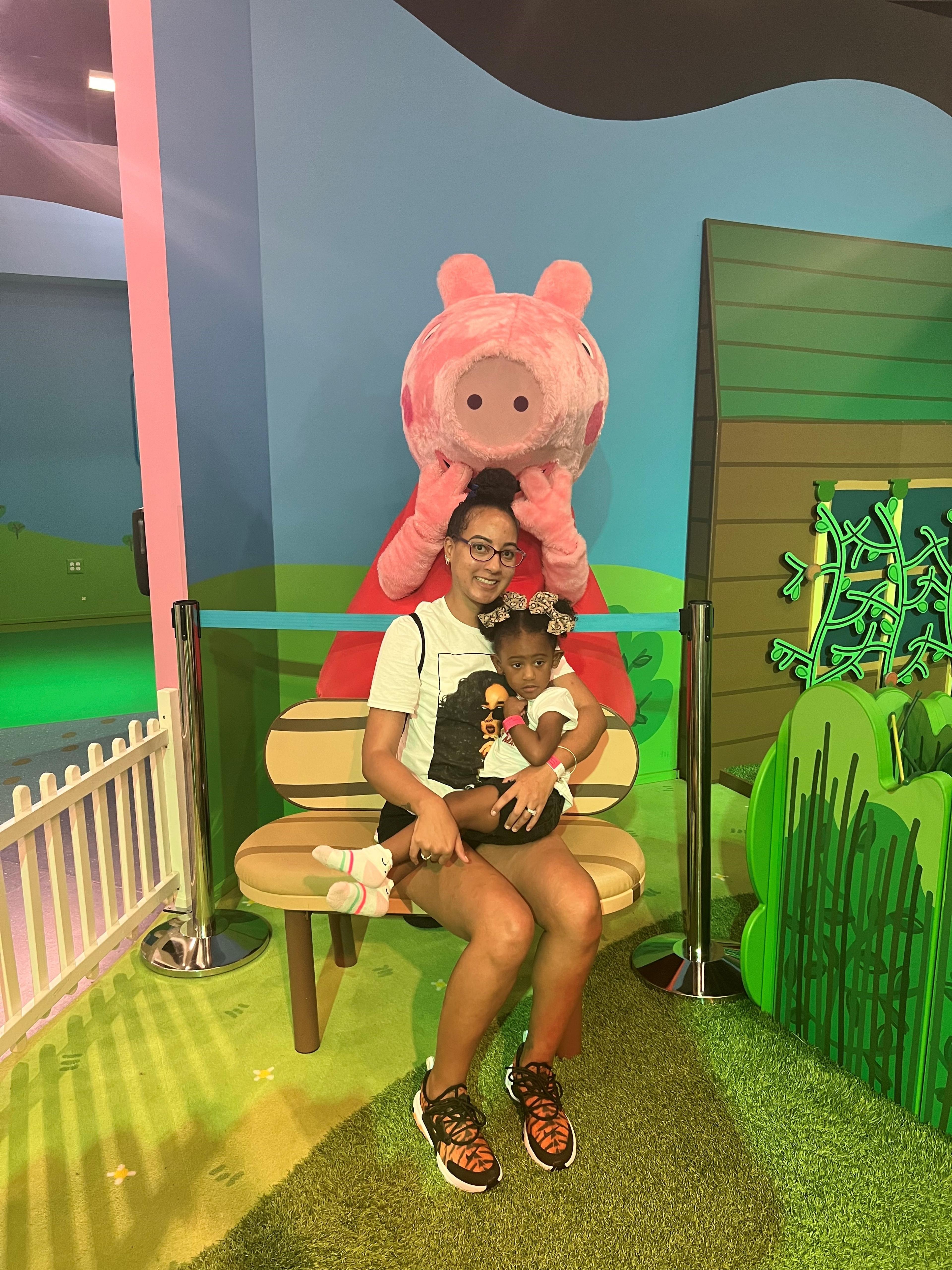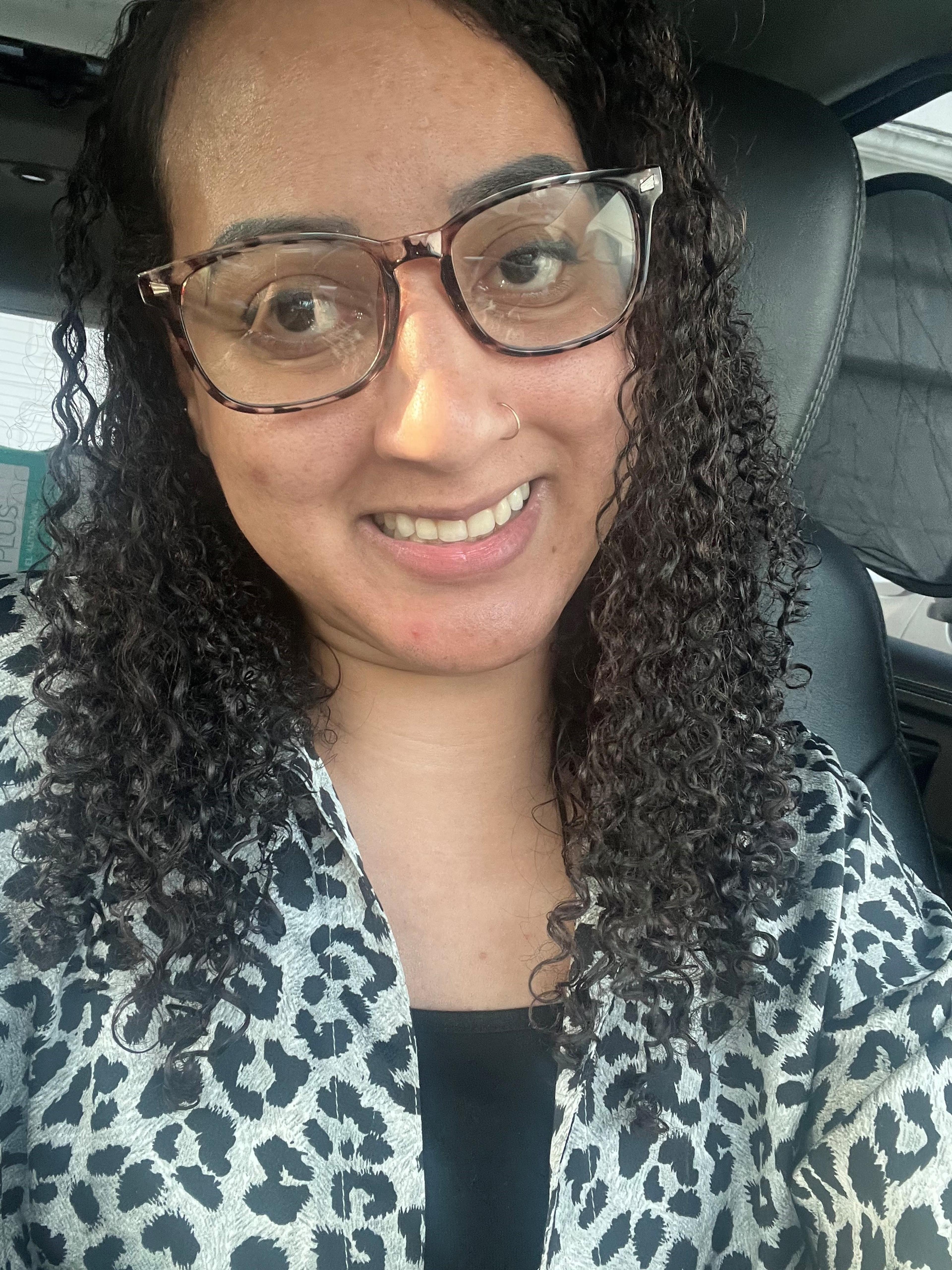‘I Was in Shock:’ How a Lansing Woman with Hyperthyroidism, Graves’ Disease Coped with her Conditions
Jake Newby
| 5 min read

If there was ever a “right” place to be while suffering from a thyroid storm, in 2017, Lansing’s Jazmyne Guy was there.
“Ironically, when I was at the doctor’s office, I had what they call a thyroid storm attack,” explained Guy, during a phone interview with Blue Cross Blue Shield of Michigan (BCBSM).
A thyroid storm – or thyroid crisis – can be a life-threatening condition that often manifests in a rapid heartbeat, fever and fainting. It can be brought on by several ailments, including Graves’ disease, which Guy unknowingly had at the time of her episode.
“I’m in the doctor’s office, I’m sweating, I feel really hot, I felt like my heart was going to explode out of my chest,” Guy said. “I felt like I was going to die.”
Doctors were able to nip the storm in the bud and treat Guy, who learned in short order that she had hyperthyroidism, along with the Graves’ disease. Guy visited a doctor in the first place was because of numerous concerning symptoms she had been experiencing, seemingly the second she turned 30.

“I just noticed little things were starting to happen. I started having memory fog, I started having tremors,” she said. “I blew it off thinking it’s nothing until about two months after my 30th birthday. I started getting sharp pains. I went to an (emergency room), got some medicine, and that worked for a little bit until the tremors came back. And my heart would beat really, really fast at times.”
Graves’ disease and hyperthyroidism goes hand in hand. Hyperthyroidism is defined by an overactivity of the thyroid gland. It occurs in people when their thyroid gland produces too much thyroid hormone and leads to all the symptoms Guy was experiencing, like hand tremors, a rapid or irregular heartbeat and weight loss. Graves’ disease is the leading cause of hyperthyroidism. It is an autoimmune condition that causes the thyroid to work harder than it needs to. These conditions are treatable, but in most cases, require lifelong treatment and medication.
Accepting her condition and learning to reduce her hyperthyroidism
Guy said the double-diagnosis was too much for her to emotionally handle at the time.
“I was in shock,” she said. “It felt like the end of the world for me. I felt hopeless, I felt lonely. I felt like no one was going to understand the things I am starting to go through and how I feel right now.”
By becoming her own health advocate, Guy was able to take control of her conditions before her conditions could take control of her.
“Talking to the doctors, asking questions, doing research,” she said. “I write things down as I feel them, that also helps me.
Guy loves her sweets, but reducing her sugar intake was a dietary measure she took to ease symptoms. She also cut back on bread and gluten, which can act as a trigger for some people with autoimmune conditions.
Since half of her battle is mental, Guy said she began to incorporate new habits and techniques into her life designed to keep her anxiety at bay. She started doing yoga. She started drawing and writing to keep her mind off things. She’d go outside when walk when she’d get stressed. She’d pick up her now 3-year-old daughter, Daityn, and play. Guy practices these techniques to keep her spirits up.

Leaning on support groups
Guy, who is now 36, felt vulnerable early into her diagnosis. Some of her most anxious feelings stemmed from thinking she was alone, and that no one could relate to her two chronic conditions. But one day Guy joined a private Facebook group known as the “Michigan Thyroid Support Group,” and quickly started engaging with people who traveled the same roads she had.
The group is a life raft of sorts for Guy, who taps into it for guidance, tips and support, even to this day.
“It just helps you relate to others. Maybe they have a technique you never thought of, or they know of a food you thought was safe to eat and is actually bad for you because it has a certain ingredient or because of how it’s processed,” she said. “This group has been tremendous. Even when I was pregnant and was stressed about how that would affect my disease, they encouraged me, they kept me calm. The group allowed me to open up more.”
Advice for others with hyperthyroidism
Guy recognizes that it’s easier said than done, but she does her best to keep a positive attitude and recommends others do the same.
“You have to have a positive attitude,” she said. “If you’re negative, it’s going to make things worse for you.”
Both of Guys’ conditions can be considered “invisible diseases.” When friends, family or even complete strangers don’t see you physically struggle, they may think you’re doing OK, which can exacerbate the mental side of the battle. That has unfortunately been the case for Guy, who would like people to be as kind and empathetic as they can be.
“Inside, they might be hurting, even if it doesn’t look like it,” she said. “Be nice, be as kind as you can be, because you never know what someone else is going through.”
Photo credit: Jazmyne Guy
Related:





